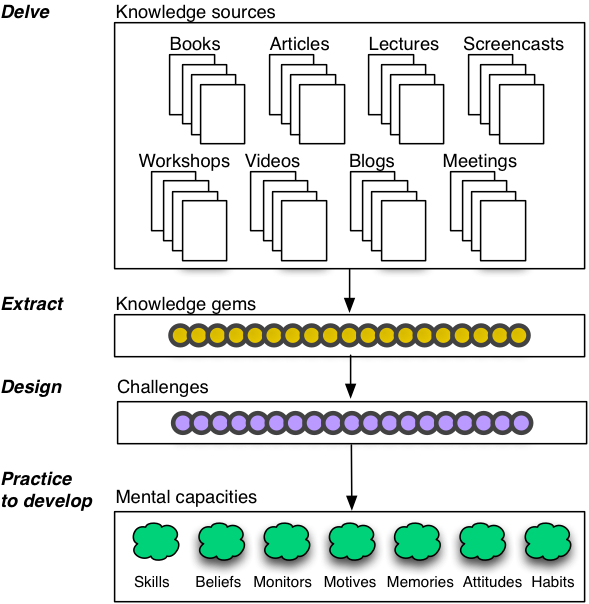To execute on CogZest’s mission to help knowledge workers use cognitive science and technology to “Thrive in the Sea of Knowledge”, I’ve written an article for SharpBrains that explains the basics and benefits of productive practice.
5 ideas to help knowledge workers increase lifelong learning and productivity
Here’s a figure from that article that sums up a process for practicing with knowledge gems:

Productive practice works for the same reasons as self-testing works for students. It forces you to attend to the most relevant information. Practicing indicates to your brain that the practiced information matters to you. Productive practice also implements principles of expertise. Productive practice is described at length in chapters 7, 13, and 14 of Cognitive Productivity.
My next book, Getting Smarter: 7 Principles to Improve Yourself with MacOS® will contain screencasts showing how to engage in productive practice.
I am stepping up my rate of contributing to SharpBrains. Their mission, which intersects with ours, is to “to provide independent, research-based, information and guidance to navigate the growing cognitive and brain fitness market.” SharpBrains gets more than 300,000 page views per month, and counting.
